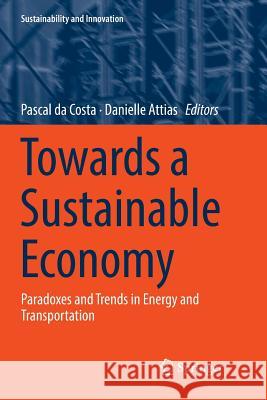Towards a Sustainable Economy: Paradoxes and Trends in Energy and Transportation » książka
topmenu
Towards a Sustainable Economy: Paradoxes and Trends in Energy and Transportation
ISBN-13: 9783030077174 / Angielski / Miękka / 2018 / 143 str.
Kategorie:
Kategorie BISAC:
Wydawca:
Springer
Seria wydawnicza:
Język:
Angielski
ISBN-13:
9783030077174
Rok wydania:
2018
Wydanie:
Softcover Repri
Numer serii:
000318657
Ilość stron:
143
Waga:
0.23 kg
Wymiary:
23.39 x 15.6 x 0.84
Oprawa:
Miękka
Wolumenów:
01
Dodatkowe informacje:
Wydanie ilustrowane











